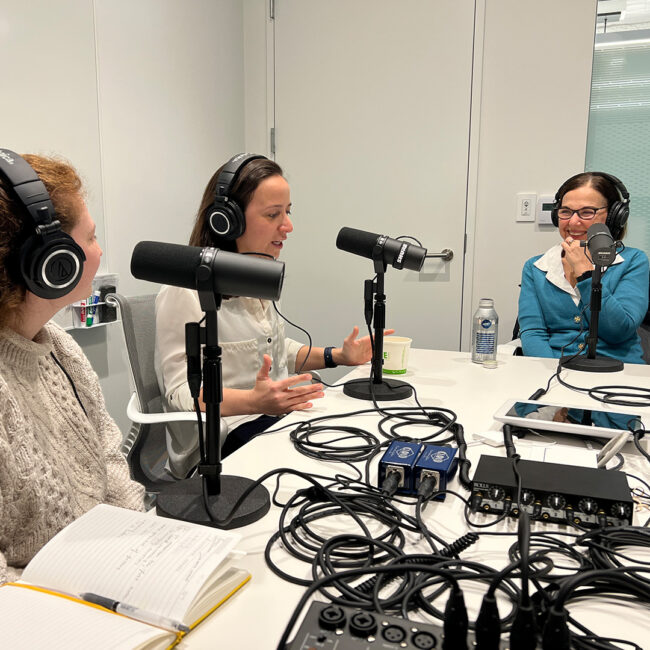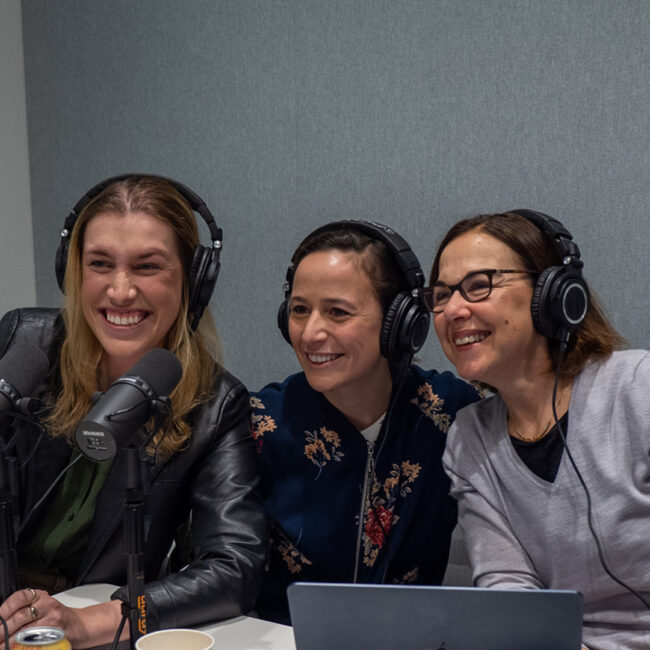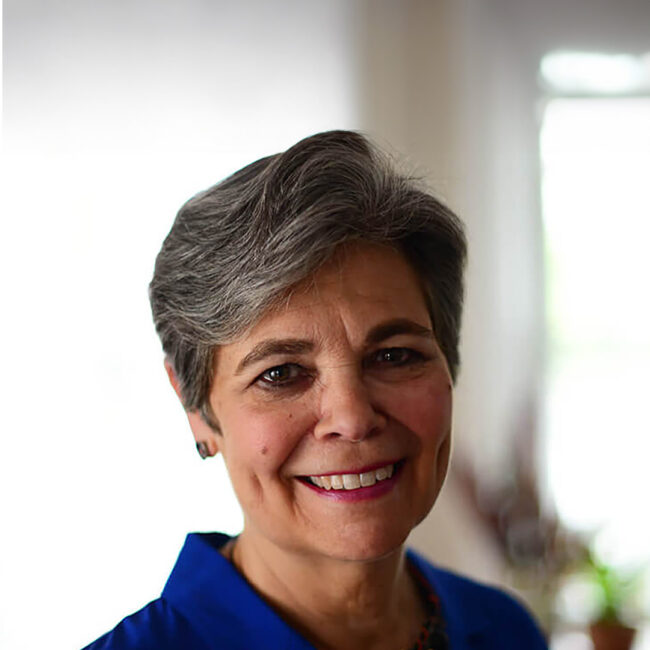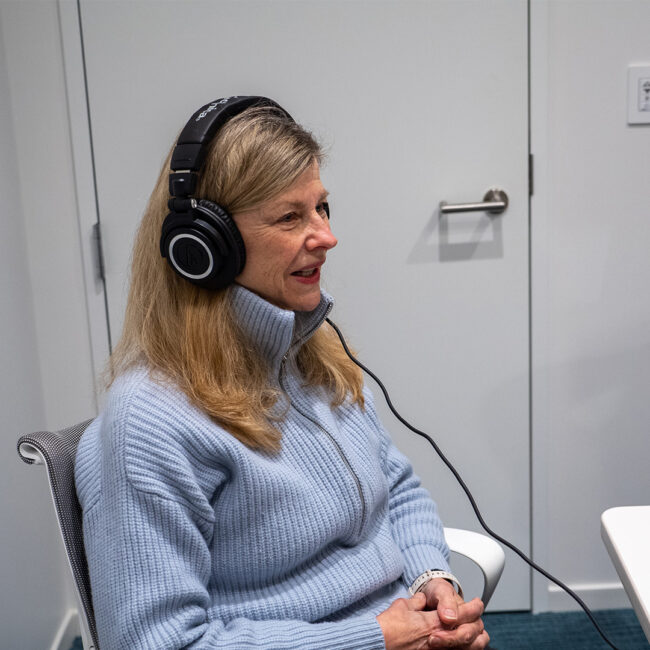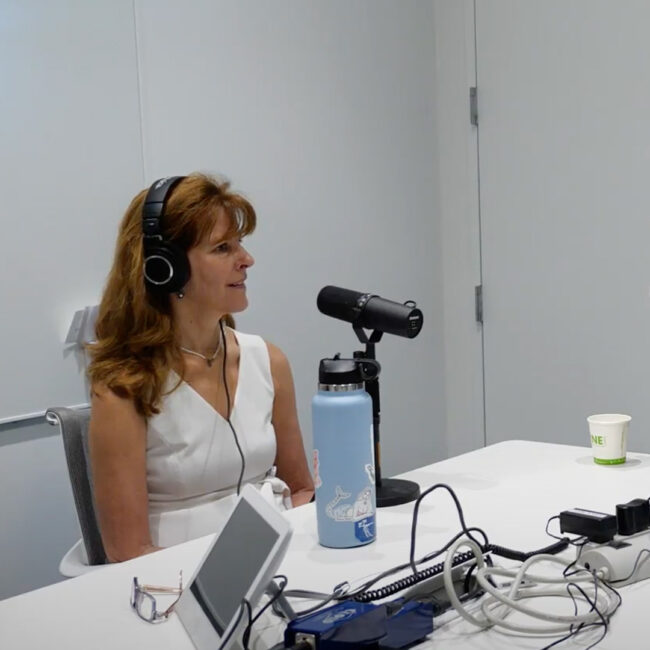
Surviving Cancer in Childhood: A Conversation with Pedro Gallardo
Episode Transcript:
Elle Billman:
Welcome to Health After Cancer. I'm Elle Billman, and I'm going to be your host today. I am joined by my co-host, Natasha Steele.
Natasha Steele:
Hey, Elle.
Elle Billman:
Today, Natasha and I have the privilege of interviewing Pedro Gallardo. A bit about my relationship with Pedro. We actually did our undergrads together. Towards the end of our undergrad, I started working on some research, looking into how childhood cancer survivors learn about their cancer histories. As I was telling my friends about my research, I was put in touch with Pedro, who is a childhood cancer survivor as well. Pedro, like I mentioned, is an adult survivor of childhood leukemia and a current medical student at UC San Francisco. He is passionate about improving medical care for patients with limited English proficiency and hopes to become an anesthesiologist. He is also a storyteller whose story on shame and medicine was featured on the Nocturnists Podcast recently. Pedro, it's so great to have you in the studio today. Let's start with having you tell us a little bit about your story.
Pedro Gallardo:
Yeah, thanks for having me. So, I was diagnosed with acute lymphoblastic leukemia when I was three. I learned all of this because my parents have told me that this is what happened. I don't actually remember the early experiences, but I was diagnosed with acute lymphoblastic leukemia and underwent really rigorous treatment at Rady Children's Hospital in San Diego for about three years. I have very limited memories from this time, I think, as a three-year-old, but my earliest memories are actually in a hospital, which I think is a really integral part of my identity and I think a big part of my cancer experience. Thankfully, chemotherapy worked. I did not need a bone marrow transplant, and I was declared in remission and was able to transition back to normal life after that.
A big part of my experience is I only spoke Spanish at the time. I was lucky to have parents who spoke English and could communicate with my treatment team, but I could not communicate with my nurses, my physicians, all the staff at Rady Children's Hospital. There was a big barrier between us, unless they spoke Spanish. But yeah, I'm now a fourth year medical student at UCSF, and I've spent the last 22 years processing what happened during those years and seeking answers, both emotional and also more medical answers in terms of what my treatment was, the risks that accompany being cured of cancer and the medications that you receive.
Elle Billman:
Yeah. I'm so happy to have you on because I think you and I really relate in our experiences. I also was diagnosed when I was two and a half, so I don't really have much memory of my treatment. I do have some memories from being in the hospital, but a lot of my cancer survivorship has been trying to figure out what happened to me as a child, so I'm prepared to manage my health in the best way possible in the future. We had a guest on who spoke about medical record fragmentation. I'm curious to hear what it was like for you to try to uncover your medical history, whether it was through conversations with your parents or if you used any other resources.
Pedro Gallardo:
Yeah, it's been complicated. My parents were understandably traumatized by their experience. I think just as much as I went through leukemia, they also had their own experience and they were also part of the people who were being treated. My family's approach after I was cured was to rarely talk about it. I think we were all in shock at what just happened, and we were just so excited for normalcy and not having to have cancer be such a big part of our lives. I think another contribution to that was my own trauma from that experience. I really did not like to talk about leukemia or acknowledge that it existed. For me, it felt like a moral failing or a personal defect that I wanted to move past and not have to acknowledge. So, up until the age of 10 or starting to enter puberty, I never really talked about cancer and I knew nothing about it. I barely learned the name of my illness, when I was 10, and I acknowledged it as leukemia.
I never really decided to enter medicine, it was always something that was inevitable for me. There was a lack of agency over what happened to me that I wanted to understand everything about that experience. There was a turning point when I was in high school, learning biology and learning that cancer was not a moral failing, but something that unlucky that your cells just happened to do the wrong thing, and I just wanted to understand the treatments I received, what my cells looked like under the microscope, all the potential side effects of the medications I received, and that's really the impetus that wanted me to go into medicine, or inspired me to go into medicine.
Unfortunately, now that I'm in my fourth year of med school, I haven't really made that much headway into understanding my medical past. I was treated during a time when there were paper records, and I've tried to work with a survivorship clinic to try to get those records and learn more about my treatment, but those records don't exist anymore. There was a period of grieving that, to have your history wiped away and no longer exist besides storytelling and talking to my parents who themselves have forgotten what happened 20 years ago. But I've since realized, I think I was hyper-focused on learning everything there was to know about my cancer. I wanted to know the names of the chemotherapy drugs. I wanted to know what the pathology report said. But I think that was just me trying to grasp control over what happened and, I think, avoiding the much harder part of moving on and arriving at some sort of peace with my cancer experience and just accepting that as something that happened and no longer blaming myself, and becoming more comfortable with that.
Natasha Steele:
What's it been like as a medical student to learn about different types of cancers, to learn about maybe the type of cancer you had, risk going forward, things like that. How do you navigate that information?
Pedro Gallardo:
It's been a whirlwind. Yeah, I think there's been phases to it. I went into medicine, really wanted to be a pediatric oncologist. That was most of my experience with medicine. It was familiar to me, or semi-familiar to me. I distinctly remember realizing, I was working on a project working with survivors of pediatric cancer, and specifically interviewing their parents and what their experience was getting their social needs met, such as parking or food insecurity during the time of their cancer treatment or their child's cancer treatment, and it was just so overwhelmingly emotional for me, especially communicating with parents in Spanish, that I knew it wasn't sustainable for me. This was back in my first year. And at the same time when I recognized that this was bad for me and not something I could do, there was a guilt of abandoning my history and not pursuing the thing that I said I was interested in and helping other kids with cancer.
I've since let go of some of that guilt and realized that I can help people, even if they don't have cancer, but I can help them in other specialties in a way that feels true to myself as well as something that feels sustainable. But I feel like so much of my medical school experience has been experiencing this different forms of guilt and shame in learning about different kinds of cancer. Before, I only knew about leukemia. Now, I've seen patients with a bunch of different kinds of cancers, during surgeries or receiving chemotherapy. There is guilt in a recognition that I had a relatively good kind of cancer. Acute lymphoblastic leukemia is the most common childhood cancer. It's one of the first, if not the first cancer that was reliably treated. Even within that, I only needed chemotherapy. I didn't need a bone marrow transplant.
So there's this feeling of conflict and feeling so traumatized from this experience and then seeing a patient in front of me who undoubtedly will have worse outcomes and will not have the privilege of reflecting on this experience 20 years after they've been cured. That's something I'm currently working through. That's the flavor of guilt that I'm working through as I navigate medical training.
Elle Billman:
Yeah. I just want to quickly note, I think that you are helping cancer survivors already just by sharing your story on this podcast and other podcasts that you've been on.
Pedro Gallardo:
Yeah. No, this has been a good outlet for me. I recently was on a podcast put on by the Nocturnists regarding shame in medicine. That was my first venture into the podcast world, or-
Natasha Steele:
You're a pro.
Pedro Gallardo:
... a creative outlet to talk about my cancer experience. I don't think I ever imagined talking about my cancer experience so openly, because it was something I went over a decade not talking about, and I never thought I would get to a point where I'd want to share other people and want cancer to be associated with my name, but it's been really helpful for me to share my emotions, hear other people sharing similar feelings. I think because there's so many different kinds of cancer and there's so many different variables that go into how someone experiences cancer, I can often feel isolated in my feelings and feel like I'm the only person in the world that feels this way or that has had this experience. Obviously, I don't like other people having difficult experiences, but it's been really healing for me to learn of other people having similar emotions, similar difficulties. There's a sense of community and belonging that comes with that, that I didn't know I needed.
Natasha Steele:
One of the really interesting things for me about survivorship as a physician has been that the paradigm that information is delivered and the way patients get resources is totally different than the way we usually deliver care. So this traditional model of doctor to patient or healthcare provider to patient in terms of doctors having all of the information and educating patients on what they're to expect, that's different in survivorship. I think so much of what I'm hearing you say is that sharing your own story and hearing other people's stories and seeking out community within survivorship has been one of the most powerful ways for you to process what happened to you to find meaning, to find commonalities, even when people have maybe a different cancer or a different life story.
Pedro Gallardo:
It was really empowering for me to realize that the answers I wanted to learn about my cancer treatment were not within medicine. These were not answers I'd be able to get from a physician, regardless of how much they knew about my treatment. Being on the other side of things as a learner and future healthcare provider is seeing that a lot of the things that were really important to me about my cancer experience are not things that physicians really care about, or are at least not trained to make note of. They care about your lab values, they care about really concrete details. But for me, it's more this nebulous, these feelings of shame, these feelings of guilt. These feelings of feeling lost are just not really, there's no medical home for that. And I've found that home or I found those resources in communities such as this.
Natasha Steele:
Can you think back to the first time you heard the term cancer survivor or the idea of survivorship and if you had that identity, what that brought up for you?
Pedro Gallardo:
Yeah. So, I didn't hear the word survivor so much growing up as valiente, which means brave in Spanish. So family friends or my family would say, "You're the most brave person just for having gone through this." And I think once I started hearing the word survivor, it evokes similar feelings as being called brave. Cancer is not really something I went through, but so much as something that happened to me. So it felt bizarre for someone to assign any kind of autonomy over an experience that I had that they knew nothing about.
To this day, I don't identify with the word survivor, because I still feel, especially as a child, I had no autonomy over my mindset or the treatment decisions that were made, or basically anything that happened to me, that I've never really identified with the word survivor, but strangely enough, I do identify with the notion of survivorship, and what's trying to push forward is, even when you're cured or even when you're past this intense cancer experience, there's a lot of processing that's involved and necessary to arrive at a healthier place. That can include treatment specifics, but also healing psychologically, emotionally, healing alongside your family members who saw you go through something really difficult and themselves are processing, and that's the definition of survivorship that I hold onto, more so than the label of being a survivor.
Elle Billman:
I have grappled with this idea of myself being called a cancer survivor as well because, like you, I was very passive in all of my active treatment. I feel like to some extent I've earned my "stripes," in air quotes, just because I had dealt with some late effects, and then this whole process of reflecting on your cancer history and understanding it to try to manage your health in the future is so integral to the survivorship experience, that I also relate to the cancer survivor in that way.
Pedro Gallardo:
For me, it was difficult to process as a three-year-old for my parents to be involved in something that I thought was hurting me. There was this feeling of mistrust. My caretakers are pinning me down for things I hate, such as blood draws, and that also took some processing. I'm not sure if you relate to that or what your experience was as a young child.
Elle Billman:
Yeah, I don't have any memories of my parents being involved in physically restraining me for certain medical procedures. I do have a memory of being physically restrained for a medical procedure and my mom was in the room, but she was very upset by the experience, and I could tell that. I was able to tease apart that this was very traumatic for her, and she wanted the test to be done, but didn't want it to be happening in that way.
Pedro Gallardo:
I think, as I learned about my cancer experience, I had a lot of resentment toward my parents for what I felt like was withholding information or failing to get me appropriate care. In my first year of medical school, I went to a survivorship clinic. Actually, it was before then. I was speaking to a pediatric oncologist, and she was like, "Oh, have you gotten your eyes checked? Have you gotten an EKG?" Kind of in passing. And I was like, "No. Is that something I should have done?" And I felt this feeling of resentment toward my parents for, "Why didn't you get me this appropriate care? Why didn't you talk to me about X, Y, and Z that happened during those years?"
Now that I'm on the provider side of things, I realize that healthcare is really complicated. And they were raising four sons, English is not their first language. There's a whole host of reasons other than personal responsibility why someone gets lost in the system. And in a sense that's been healing for me, is extending them some forgiveness and grace in realizing that they also went through something really difficult, and any information that was missed in the process was not as a result of personal irresponsibility, but this being a really difficult system to navigate.
Natasha Steele:
Can you talk a little bit about, Pedro, as the arc of your survivorship evolved and you went through the experience of taking more control over your health or having a better understanding of what was going on, educating yourself as a medical provider, what has this looked like for your parents?
Pedro Gallardo:
That's a good question. I don't think I've ever asked them directly. They have a ton of pride in me pursuing medicine. I'm the first, or will be the first physician on either side of my family to pursue medicine. They've seen the ways that I've grown and grappled with my cancer in ways that maybe they weren't equipped to help me grapple with. So I think it's a happy story. I think it's a big source of pride in my family, and I think it's one way that we're all healing is this full circle moment of relying on other physicians to help take care of us, and then having their son who underwent through this and was the beneficiary of so much grace and amazing treatment from my healthcare team, providing it for others.
Interestingly enough, the only physician I remember growing up was my anesthesiologist who would put me to sleep before bone marrow biopsies. I didn't know they were bone marrow biopsies. I thought they were naps. And that adds to my full circle moment of I'm now becoming an anesthesiologist. And I think those kinds of stories are a big source of pride for me and as well as my parents.
Elle Billman:
Let's say there is a parent of a childhood cancer survivor who's listening to this podcast. What advice would you give to that parent? I know that's a really broad question, but in helping their child manage their survivorship.
Pedro Gallardo:
I think, in light of my own experience, I wish that even though I resisted speaking or saying anything about my cancer experience because it was acutely upsetting, I do wish there were more attempts to talk about it. We may or may not have made any headway in terms of me processing the experience or learning more about my treatment, but I think it would have been a helpful reminder that this was something that impacted all of us and that it was something important for me to process, be it with my family or by myself or with other people, that this is something worth talking about, even if I did or did not want to engage. The only bad way to have a conversation about survivorship is not having it at all.
Elle Billman:
I totally agree, and I'll add a tidbit to also answer the hard question I posed. Not only having the conversations, but doing it in a way where there's not an emotional burden. I think for me, I sometimes avoided talking to my parents about my cancer history because I saw the emotional impact it had on them, rightfully so, but that just made another barrier for me.
Pedro Gallardo:
Yeah. No, that definitely resonates for me. A big component of my understanding of cancer was something happened to me or I did something that is causing my family to be sad. Seeing my dad cry, seeing aunts and uncles fly in, I remember they looked really concerned. And I think that aspect of me being an emotional burden or something that happened to me being an emotional burden made it really difficult for me to process. I hated the idea of something I had personal responsibility for, not just for my parents, but the reality is my brothers lived without one or both of their parents for months at a time. They had sleepovers at friends' houses. My parents weren't there to help them with homework. And interestingly enough, one of my most, I went to Disney World for Make-A-Wish when I was around four.
Elle Billman:
So did I.
Pedro Gallardo:
It's a very classic trip choice. And actually, I'm a Wish Granter now-
Natasha Steele:
Oh, cool.
Pedro Gallardo:
... so I grant wishes for other kids experiencing similar ailments. But what I loved about Disney World wasn't so much meeting Chip and Dale or the rides, but just feeling like my family was normal again, seeing my brothers have fun, seeing my brothers with both of my parents. And the fact that a four-year-old felt that is really profound to me.
Natasha Steele:
One of the things we heard your mom, Elle, talk about was how as a parent, the tendency is to try to make your child's life as normal as possible, which is fantastic and should continue, and at what point and how do you then balance educating your child, like you were talking about with survivorship conversations around what to expect in the future and supporting them in their understanding that as much as you wanted everything to be normal, some things aren't, and how do you empower them to take the baton and go forwards in adolescent, young adult for the rest of their lives.
Pedro Gallardo:
Yeah. And I think the fact of the matter is having cancer is not normal. And as soon as that happens to your child, their life isn't normal anymore. Obviously you can work within that and give them a great life, but normalcy as parents envision it isn't as possible once you undergo this experience.
Elle Billman:
I hear a lot from survivors that cancer impacts their relationship with their body, and I think this is somewhat common for survivors to start to feel distrustful of their body after cancer or even take on the viewpoint that their body doesn't always do what it is supposed to do. Pedro, can you share if cancer impacted your relationship with your body, and if it did, what this was like for you?
Pedro Gallardo:
There was something really impactful for me in terms of relating to my body as my body caused cancer. And when I realized I was gay in 8th Grade, it felt like my body was failing me again. And because we didn't have these conversations about cancer happening to you and not as a result of a moral failing, I felt like my sexuality and cancer were linked, and it was like, "Oh, it's my body, it's doing the wrong thing all over again. So I think there's a really interesting connection between cancer and bodily autonomy and sexuality and relating to others in ways that still has reverberations, not just after realizing I was gay. But every time I'm intimate with someone, I have a big scar on my chest and it's always inviting conversation. So, survivorship is ongoing. It's never a process that's going to end for me.
Elle Billman:
Thank you for sharing that, Pedro. It's really interesting to hear how your survivorship experience has intersected with your sexuality. That's something that I haven't thought about a lot.
As our show comes to an end, I want to echo the last point you made, that the cancer experience does not end when patients get their clean bill of health. I think especially for childhood cancer survivors like us, there is a lot of mental and emotional processing that goes on in adolescents and even young adulthood as we try to figure out who we are and what we want to do with our lives. I'm so happy that we were able to reconnect and discuss our survivorship experiences again.
If you enjoyed listening to us today, please rate, follow, and subscribe to Health After Cancer wherever you listen to podcasts.
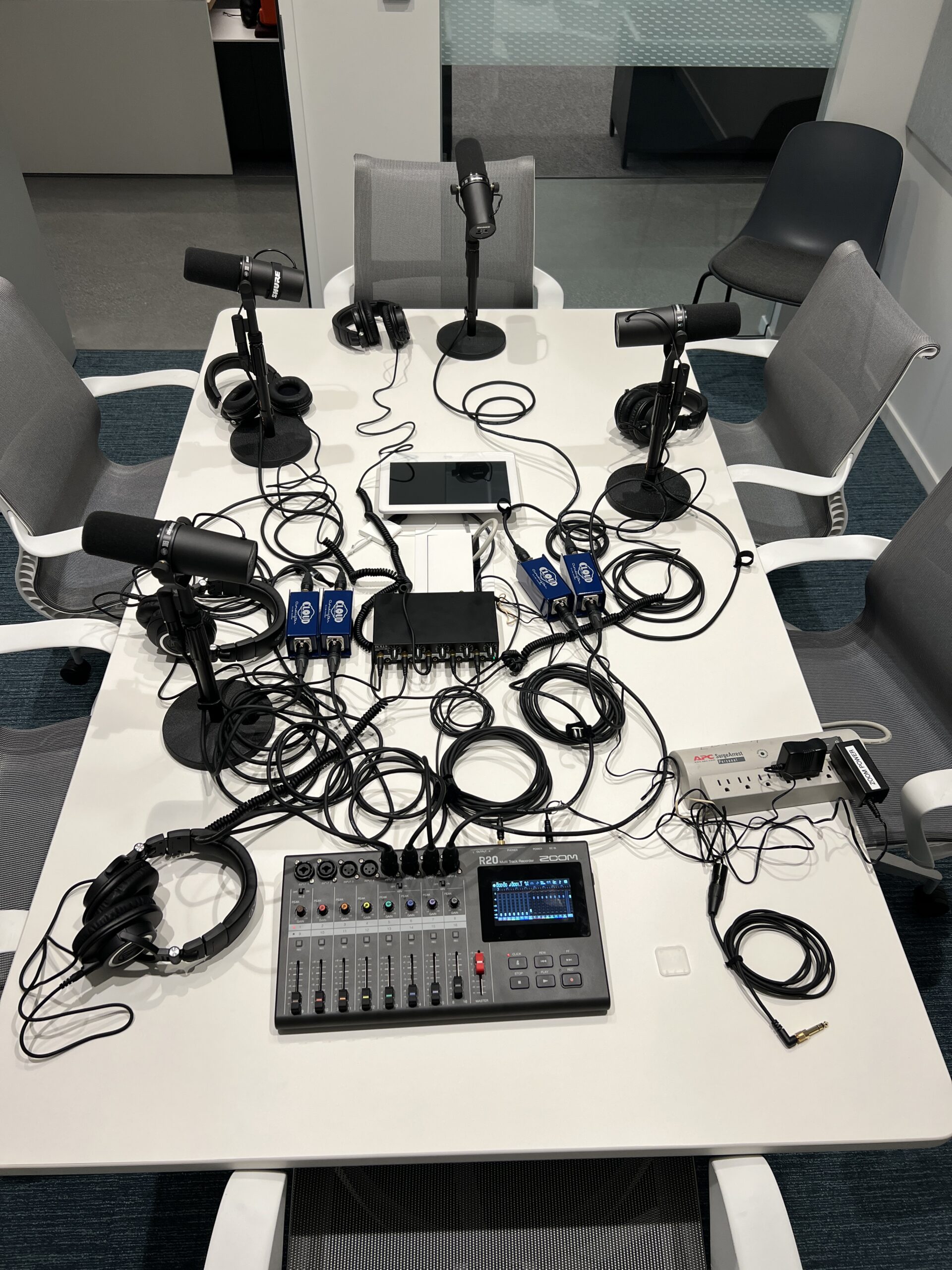
Meet your hosts:
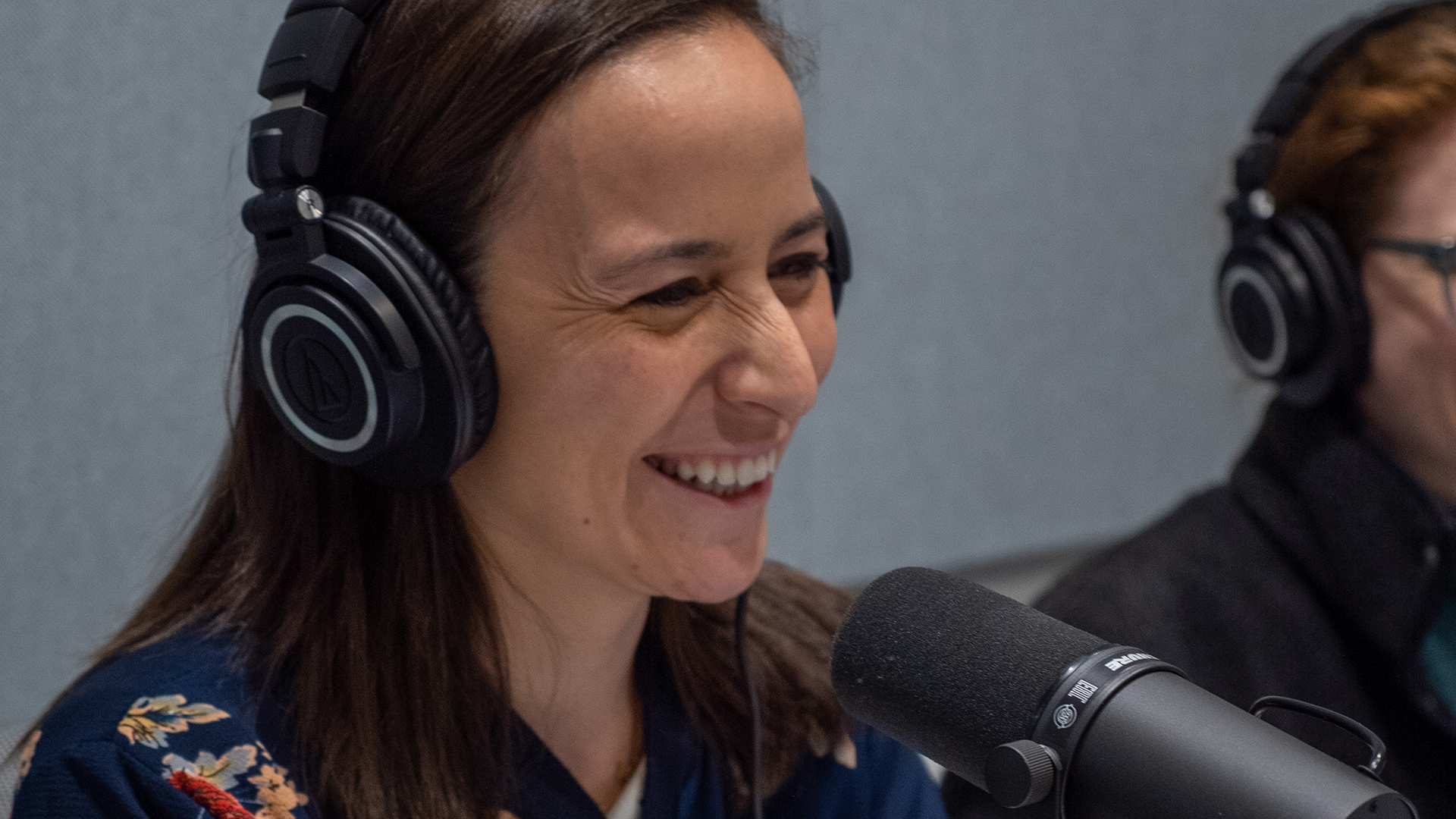
Natasha Steele
Natasha is a young adult cancer survivor, an internist and researcher, and an incoming faculty member at Stanford Medicine.
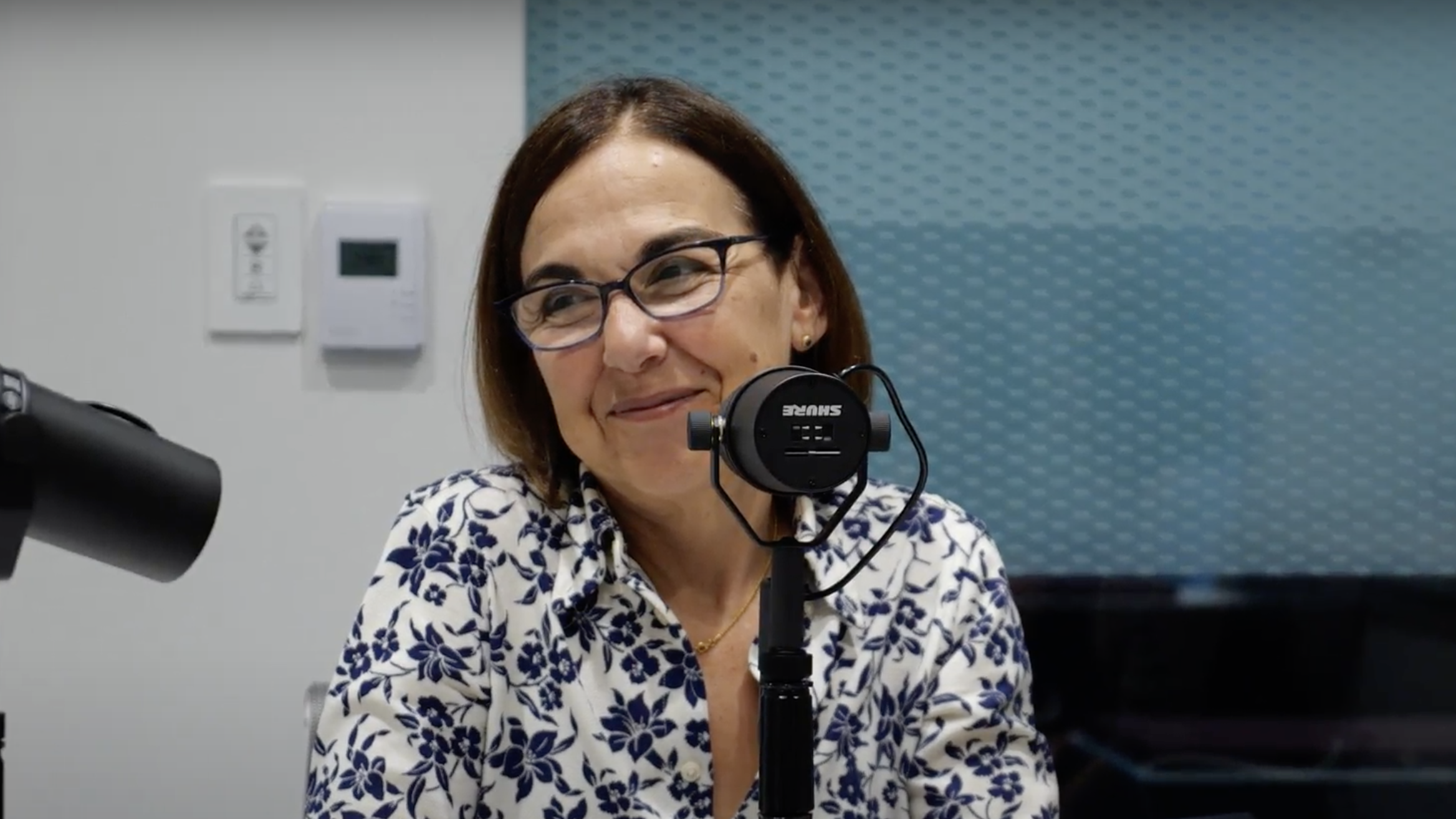
Lidia Schapira
Lidia is the director of the Stanford Cancer Survivorship Program and the executive producer of Health After Cancer.
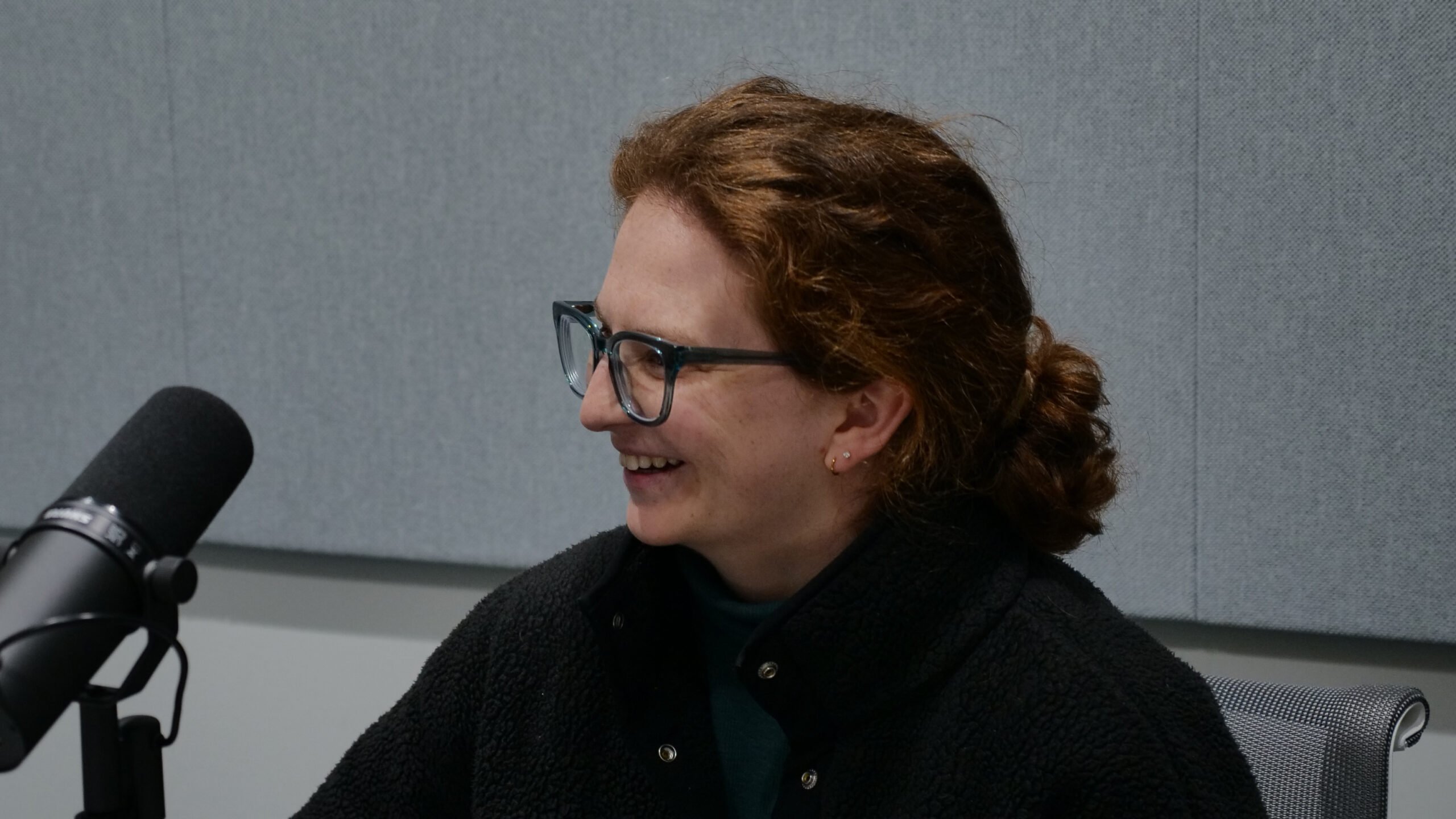
Elle Billman
Elle is a childhood cancer survivor and 2028 MD candidate at the Ichan Medical School, at Mt. Sinai, in New York.


